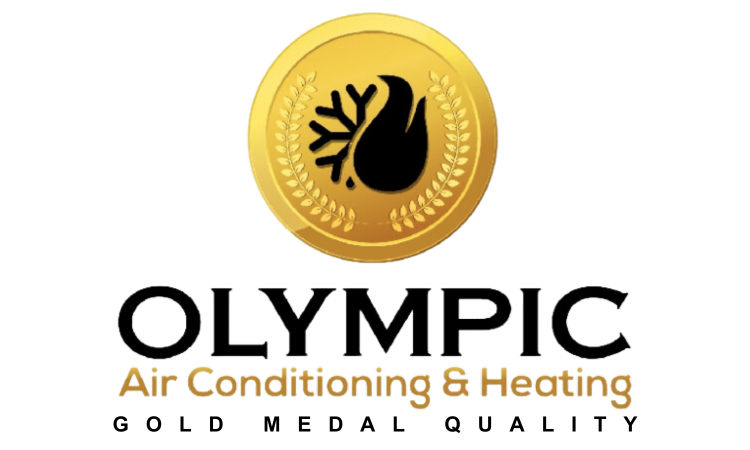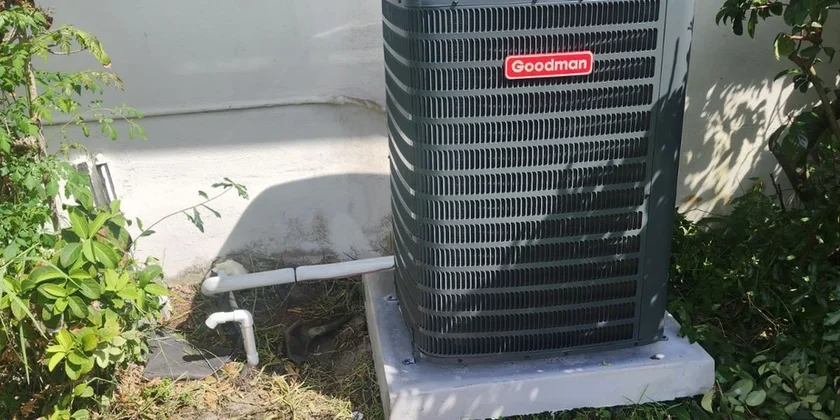For homeowners in Deltona, FL, finding ways to improve household energy efficiency has become increasingly important. With soaring summer temperatures and rising utility costs, upgrading your HVAC system is one of the most effective ways to cut energy waste and enhance indoor comfort. Whether you’re replacing an outdated system or planning a new home installation, investing in an energy-efficient HVAC solution not only reduces your carbon footprint but also saves money over time. At Olympic Air Conditioning & Heating, we understand that every family’s needs are unique, and we’re here to help guide you toward smarter, more efficient home climate control.
Key Takeaway:
Installing a modern HVAC system tailored to your home’s specific needs can drastically reduce energy consumption, lower monthly utility bills, and create a healthier, more comfortable living environment in Deltona and surrounding areas.
Understanding the Importance of Efficient HVAC Systems
HVAC Efficiency Impacts Your Entire Home
When your HVAC system runs inefficiently, your entire home suffers. Rooms might feel unevenly heated or cooled, energy bills spike unexpectedly, and your equipment works harder than it should. New HVAC systems are designed with energy-saving features like variable-speed blowers and smart thermostats that allow better airflow regulation and temperature consistency, especially critical in climates like Deltona’s.
Seasonal Energy Efficiency Ratio (SEER) Matters
The SEER rating is a crucial metric when choosing a new system. Higher SEER ratings indicate better energy performance, and modern systems often meet or exceed minimum federal standards. Choosing a high-SEER unit can result in significant long-term savings while contributing to greener energy consumption in your household.
Technological Advancements Drive Efficiency
Modern HVAC technology incorporates cutting-edge features like heat pumps and zoned temperature control. These innovations not only improve energy use but also deliver a quieter, more precise climate control experience. Systems now integrate with smart home devices, allowing for automated scheduling and remote adjustments—perfect for busy Deltona residents on the go.
Benefits of New HVAC Installation for Energy Savings
Reduced Utility Costs and Consumption
An upgraded HVAC system can cut energy bills by up to 20% or more. New installations are optimized for energy efficiency, ensuring that every watt of electricity or unit of gas is used effectively. Compared to older systems, today’s units minimize waste while maximizing output, especially during Florida’s humid summers.
Enhanced Indoor Comfort
Comfort isn’t just about temperature—it includes humidity control, air quality, and even noise levels. High-efficiency systems better regulate humidity levels, filter allergens, and operate with minimal disruption. That means better sleep, fewer allergy symptoms, and a more peaceful home life for your family.
Better Environmental Impact
Reducing your carbon footprint starts at home. A new HVAC system limits greenhouse gas emissions and decreases dependency on fossil fuels, especially when paired with energy-conscious construction choices. Learn more about how homes are built for efficiency on this home construction resource.
Choosing the Right HVAC System for Your Needs
Consider Heat Pumps for Versatility
Heat pumps provide both heating and cooling, making them ideal for Florida’s climate. They are particularly energy-efficient in moderate climates like Deltona’s and can be used year-round with minimal energy usage. To understand how they work, visit this guide on heat pumps.
Tailor the System to Home Size and Layout
Your HVAC unit should be sized according to your home’s square footage, insulation, and window placement. Oversized or undersized systems waste energy and result in inconsistent comfort levels. A professional assessment ensures optimal fit and operation.
Opt for Programmable or Smart Thermostats
Thermostats that adapt to your routine or can be controlled remotely offer real-time energy savings. You can schedule temperature adjustments while away from home, reducing energy waste and ensuring your house is comfortable upon your return.
The Role of Professional Installation and Maintenance
Importance of Proper Installation
Even the most efficient system will underperform if not installed correctly. Poor ductwork, improper refrigerant levels, or inadequate airflow calibration can reduce system lifespan and effectiveness. Trust a qualified HVAC contractor like Olympic Air Conditioning & Heating to get it right the first time.
Routine Maintenance Preserves Efficiency
After installation, regular maintenance is key to long-term performance. Our HVAC maintenance plans include inspections, cleanings, and system checks that keep everything running smoothly year-round. Preventative care not only boosts efficiency but also helps avoid costly breakdowns.
Warranty and Support
A new system often comes with manufacturer warranties, but ongoing support from your installer is equally vital. Our team stands behind every installation with dedicated customer care and service follow-ups, ensuring your comfort is never compromised.
Optimizing Energy Efficiency After Installation
Upgrade Insulation and Sealing
Efficiency doesn’t end with the HVAC unit. Proper insulation in attics, walls, and floors reduces the strain on your system by maintaining indoor temperatures more consistently. Sealing gaps around windows and doors prevents energy loss and improves system efficiency.
Use Ceiling Fans to Support Airflow
Ceiling fans help circulate air, making rooms feel cooler in summer and warmer in winter. This allows you to raise or lower the thermostat slightly without sacrificing comfort, reducing strain on your HVAC system.
Schedule Seasonal Inspections
Book pre-summer and pre-winter checkups to ensure peak performance when your system is working hardest. These inspections catch minor issues early, helping to avoid major repairs and keep your energy bills in check.
Answering Common Questions
How do I know if my current HVAC system is inefficient?
If your system is over 10 years old, frequently needs repairs, or results in unusually high energy bills, it may be time for an upgrade. Uneven temperatures or excessive noise can also signal inefficiency.
What’s the difference between central air and heat pump systems?
Central air uses a traditional air conditioner and furnace combo, while a heat pump provides both cooling and heating through one unit. Heat pumps are especially efficient in milder climates like Deltona’s.
How can I get started with a new HVAC installation?
Reach out through our contact page to schedule a consultation. We’ll evaluate your home and guide you through options that fit your energy goals and budget.
The Influence of Local Climate on HVAC Efficiency
Deltona’s hot, humid summers and mild winters make energy-efficient cooling systems a priority. Systems designed for humid climates offer better dehumidification, which directly improves comfort and reduces strain on the unit. Selecting a system with humidity control features can lead to both improved efficiency and better indoor air quality.
How Building Design Affects HVAC Energy Use
Open floor plans, ceiling height, insulation, and window placement all influence HVAC performance. If your home was built without energy efficiency in mind, your HVAC system may be working harder than necessary. Working with an HVAC professional ensures your system is tailored to your home’s unique design, helping maximize energy savings and comfort.






